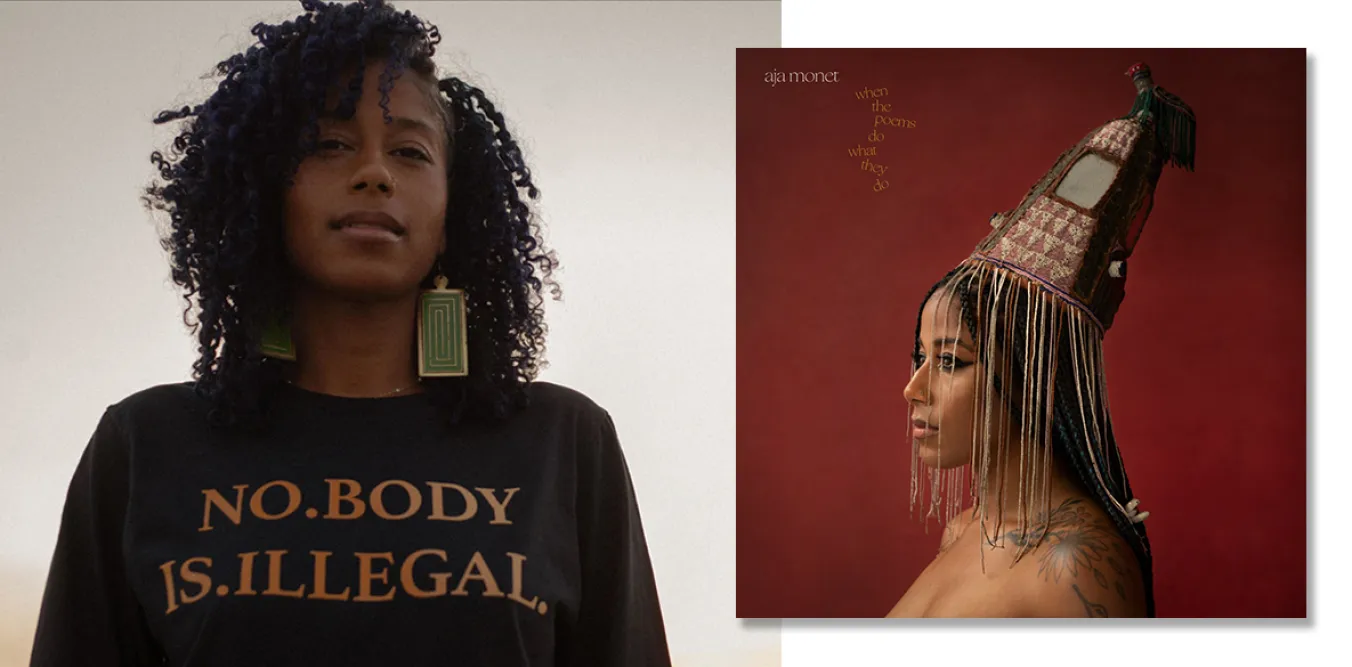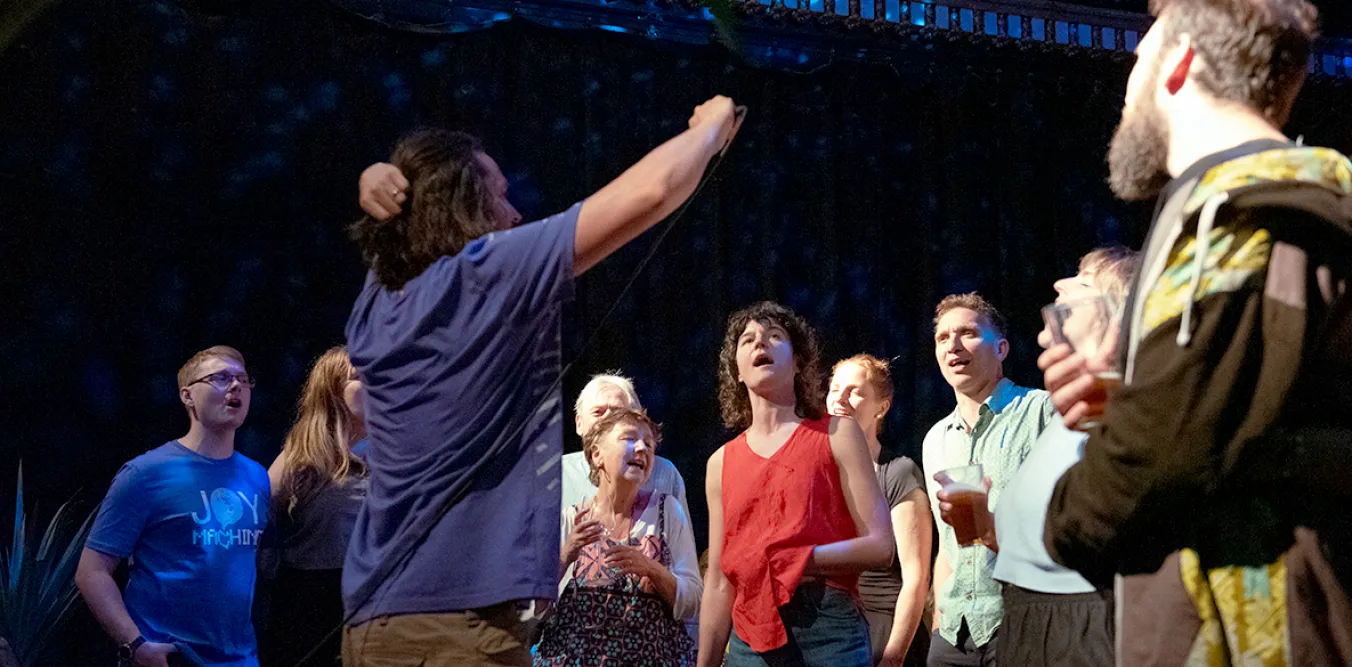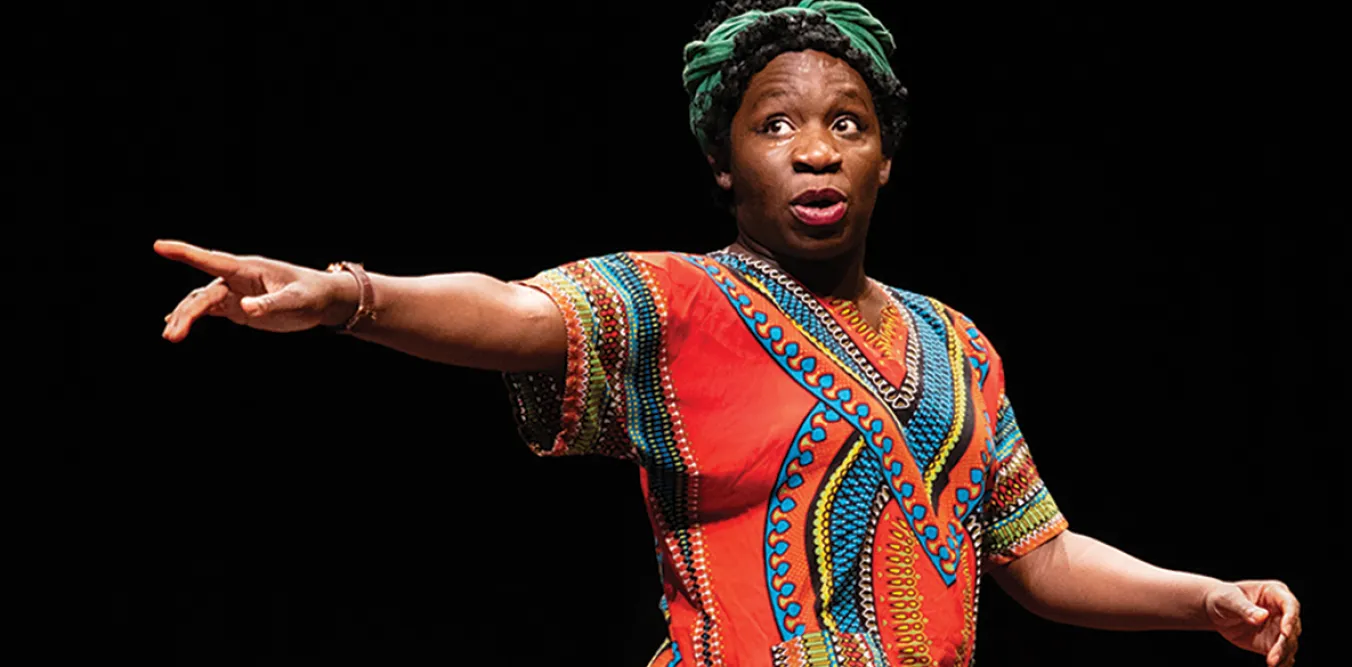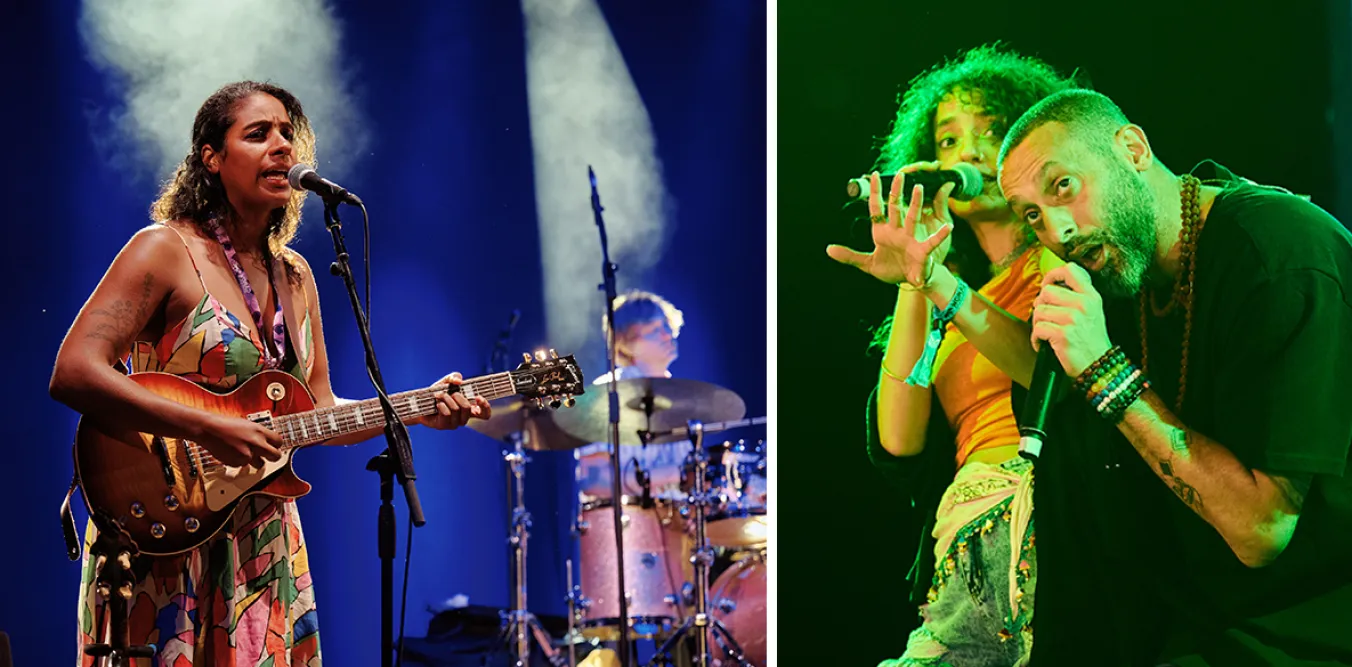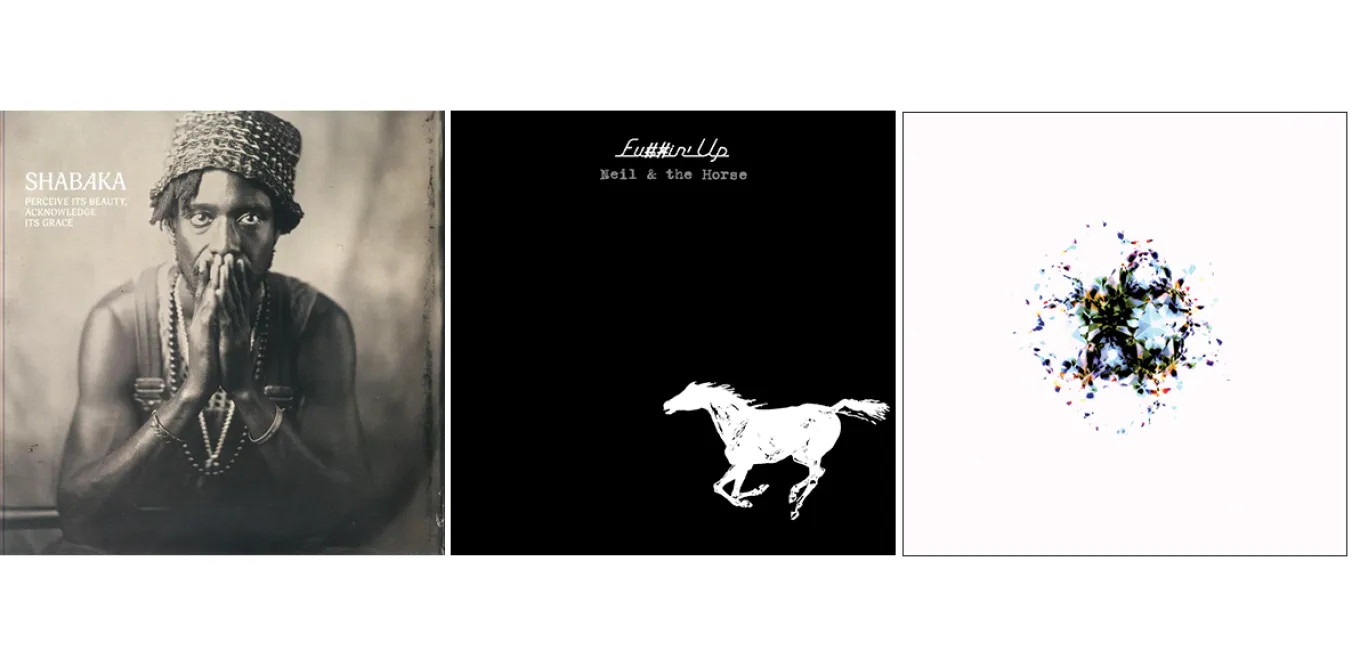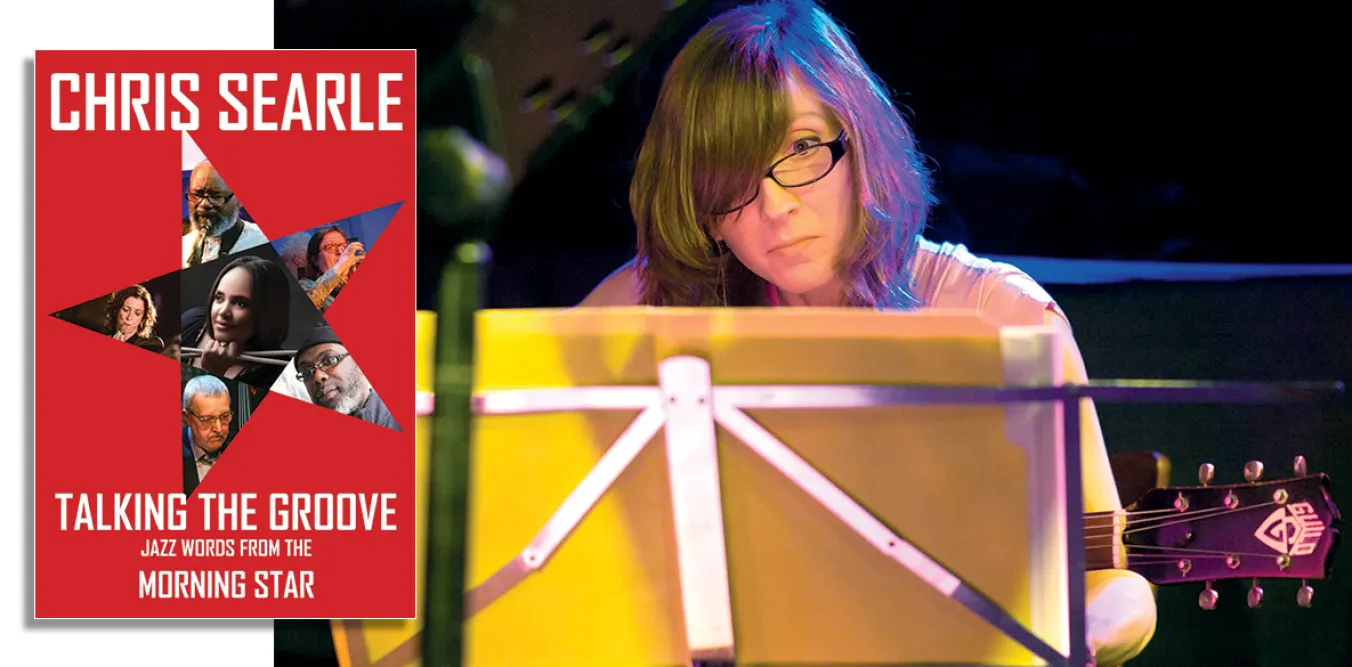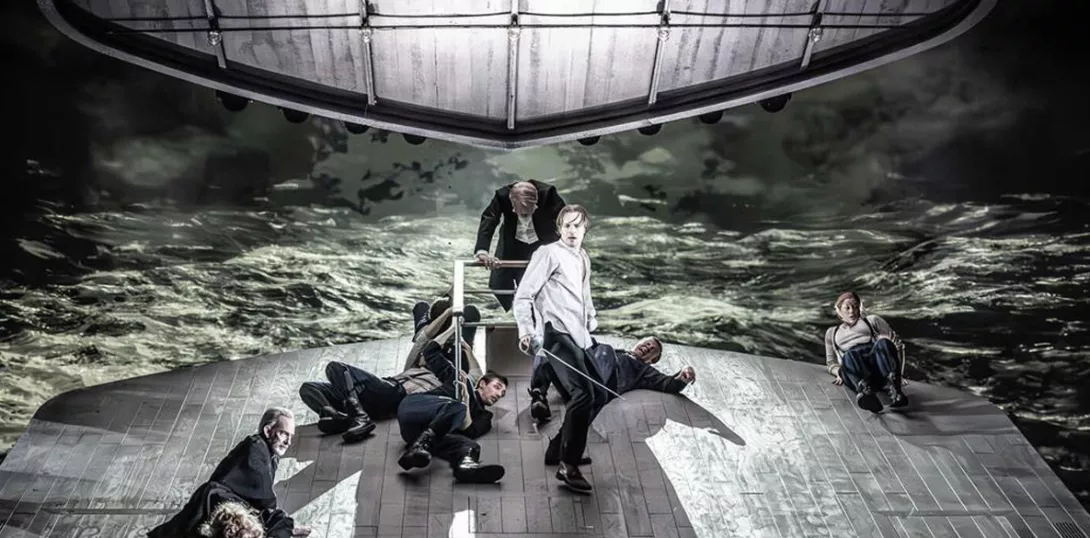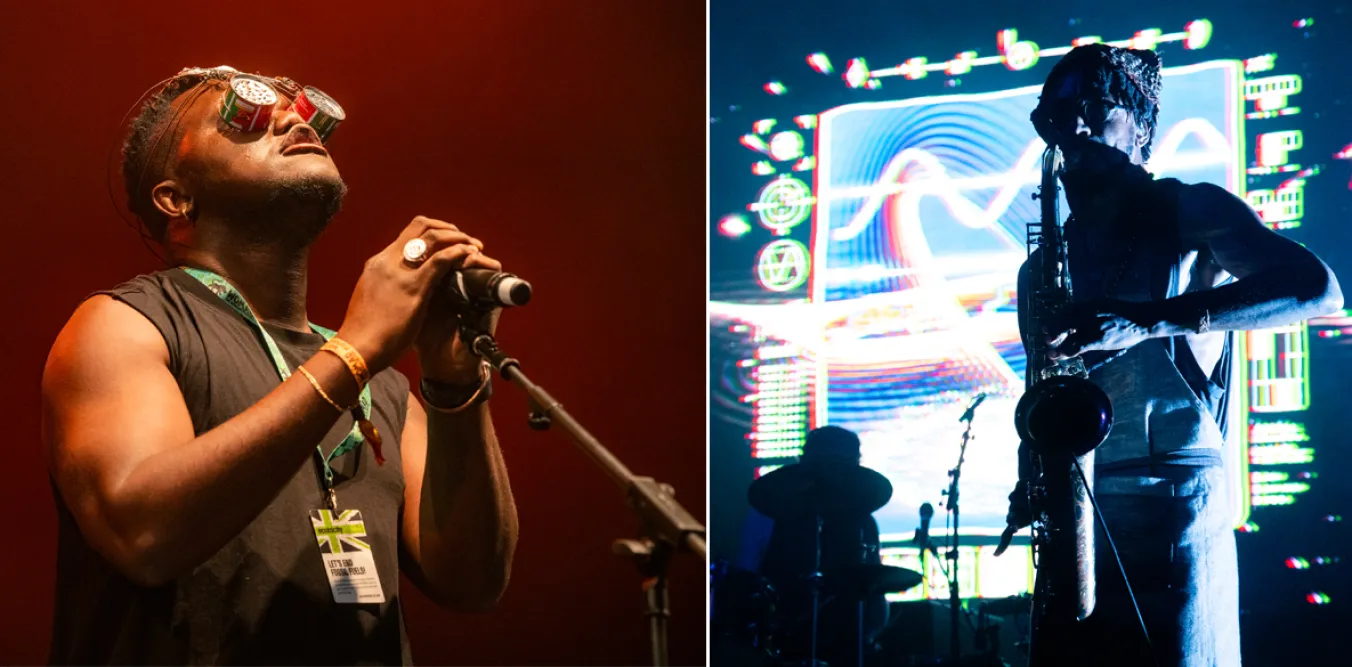
WOMAD festival, Charlton Park
I AM often haunted by Mark Fisher’s sobering claim that innovation in music died with the triumph of neoliberal capitalism in the 1990s. But seeing performers like Theon Cross it feels like he spoke too soon.
Theon’s second album from 2021 was a thoroughly 21st-century meltdown of various electro, dub and jazz influences, practically creating a new genre in its own right. Tonight’s fully live band is more firmly in the jazz tradition, with Patrick Boyle converting the original chemical beats into something more organic whilst still retaining the power and urgency of the original recordings.
Theon himself provides the basslines from his tuba, accompanied by the sublime Chelsea Carmichael on saxophone, with atmospherics provided by the incredibly versatile Nikos Zarkos on guitar. Yet the influence of ragga, jungle, grime and hiphop still looms large, influencing the beat and syncopation of the horn lines, as well as the dynamics of the sound as a whole.
